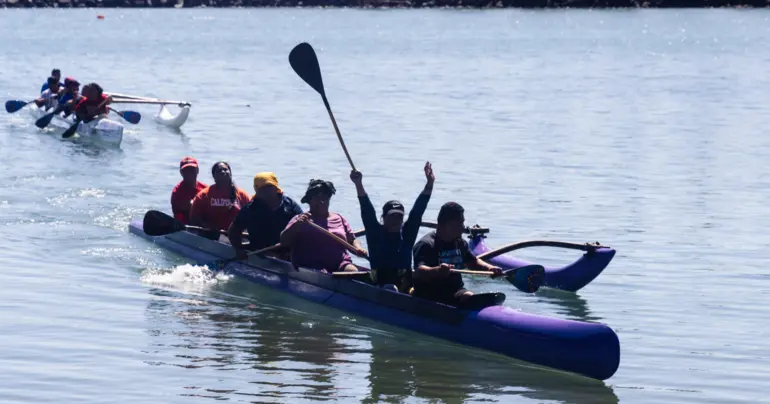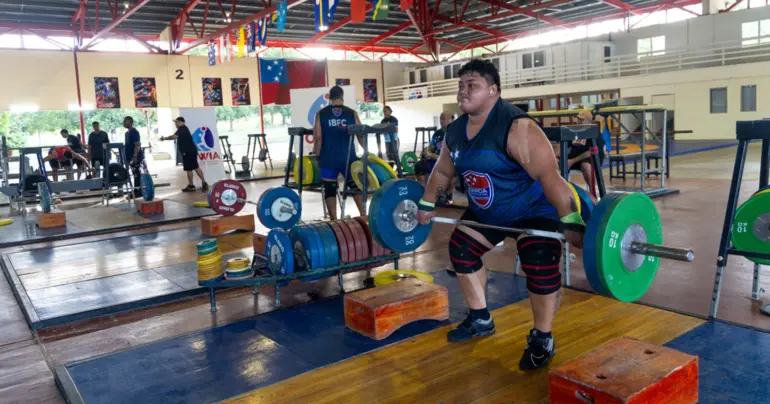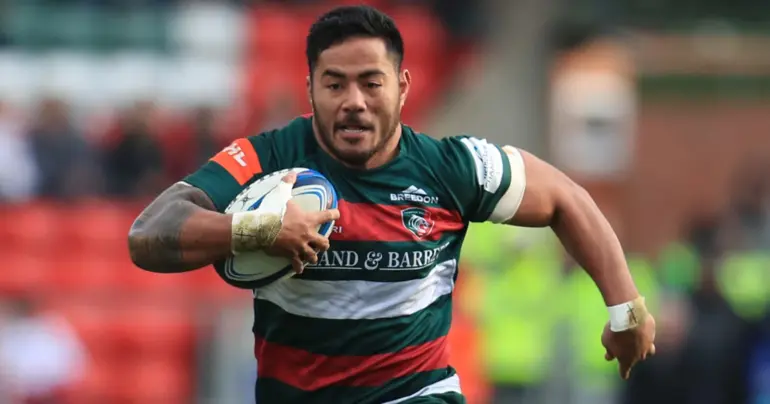Study delves into Pacific athletes' mental heath
 By Thomas Airey
•
19 January 2020, 1:00PM
By Thomas Airey
•
19 January 2020, 1:00PM
Young Pasifika athletes in elite New Zealand rugby codes are aware of mental health issues, but tend not to seek help or use support services available to them.
That’s what University of Auckland PhD candidate, Caleb Marsters, has found in his research into Pasifika men, mental health and elite sports.
He has interviewed professional and semi-professional athletes in rugby league and rugby union as part of that research.
“A few of them it was their first time really having a deep discussion about mental health and even emotions and stuff like that, but the majority of guys that have been in the elite system for a while, they get so much support and services and people coming in to talk to them about mental health and where they can go,” Marsters said.
“They’re very informed about it, but the gap we’re seeing is the information they have versus the actions we’re seeing around help-seeking.”
“They know where the support is, they know what depression is, but actually making that first step to seek help or use these services.”
He said for almost all the players he talked to, their main motivation was to get a professional contract to help their family.
“The pressure associated with that, the obligations and whatnot to give back, for whatever reason, sports I guess has that visibility with these young guys… there’s a lot of pressure on them to succeed to give back,” Marsters said.
“That’s where we found a lot of the fear of failure, the massive impact from when you’re dropped from a team or maybe you miss out on a contract, it’s usually that feeling of letting the family down.”
And that pressure is often self-imposed; players perceiving high expectations from their family.
“For those boys who did overcome their mental health struggles after those experiences, it was usually sitting down with their parents, and their parents giving them that reassurance that helped them feel better, and got them to a better place mentally,” Marsters said.
He also found that the interview subjects mental wellbeing tended to be very closely related to their athletic performance, a dangerous phenomenon.
“They’re coming through these systems from a young age, and sports is their whole life, especially rugby and league,” Marsters said.
“The reality is that even if you do well, even if you become professional, there are losses and everyone leaves the sport eventually.”
When one only thinks of themselves as an athlete, and that is taken away from them, that leads to a loss of self-worth.
“We need to make sure from a young age we’re encouraging our young guys to yeah, put their heart and soul into sports, but also think about making sure you have something else to fall back on,” Marsters said.
“It’s hard, because it takes a lot to become a professional, but even some of the coaches and stuff I’ve interviewed…, they encourage the young guys and let them know that sports should be their Plan B.”
Samoan Blues number eight Akira Ioane spoke openly about his mental health struggles this week, and Marsters said those high-profile players sharing their stories is positive for the younger athletes coming through.
“It’s huge, from the interviews when I asked who opened their eyes about it it’s been former players that have come into their camps and shared their messages and their struggles,” he said.
“That doesn’t just help to reduce the stigma, but it also shows it’s okay to go through these things.”
While Ioane and his teammates have plenty of mental health services available to them, a lack of resources means that doesn’t happen in the elite sports environment in Samoa.
The Manu Samoa employed Pastor Lenny Solomona as a mental skills coach prior to their Rugby World Cup campaign, however that was notable as an outlying case.
Marsters said that lack of resources makes it difficult to develop athletes holistically in the islands.
“At the same time we find people born in the islands are actually having better mental health outcomes than our island people who are born in New Zealand,” he said.
“Even 10, 11, 12 year olds are having better mental health outcomes than Pacific kids who are born in New Zealand.”
Marsters said there are plenty of reasons why that could be the case:
“[Pasifika health service] Le Va has done a lot of research around that, and they pretty much put it down to cultural identity and cultural conflicts, and how that can lead to stress for young people.
“Someone who isn’t strong in who they are; ethnic wise they may be full Samoan or afakasi, but cultural wise it’s ‘I don’t fit in with my Samoan family and I don’t fit in in my New Zealand school, so I’m sort of in the middle’.”
Research suggest these sorts of internal conflicts occur in the age range of 16 to 24.
“Where do I fit in the world, sense of belonging, all those types of things can impact on our youth.”
Marsters is looking forward to tackling that issue and others at Samoan company EI8HT Sports’ Health Literacy Expo on February 1st in Auckland, where he has been invited to help lead discussions.
“Just trying to raise awareness from a male perspective around mental health, especially suicide prevention,” he said
“Trying to let young men know that there’s support around you if you do need it, if and when the struggles come up.”
 By Thomas Airey
•
19 January 2020, 1:00PM
By Thomas Airey
•
19 January 2020, 1:00PM











